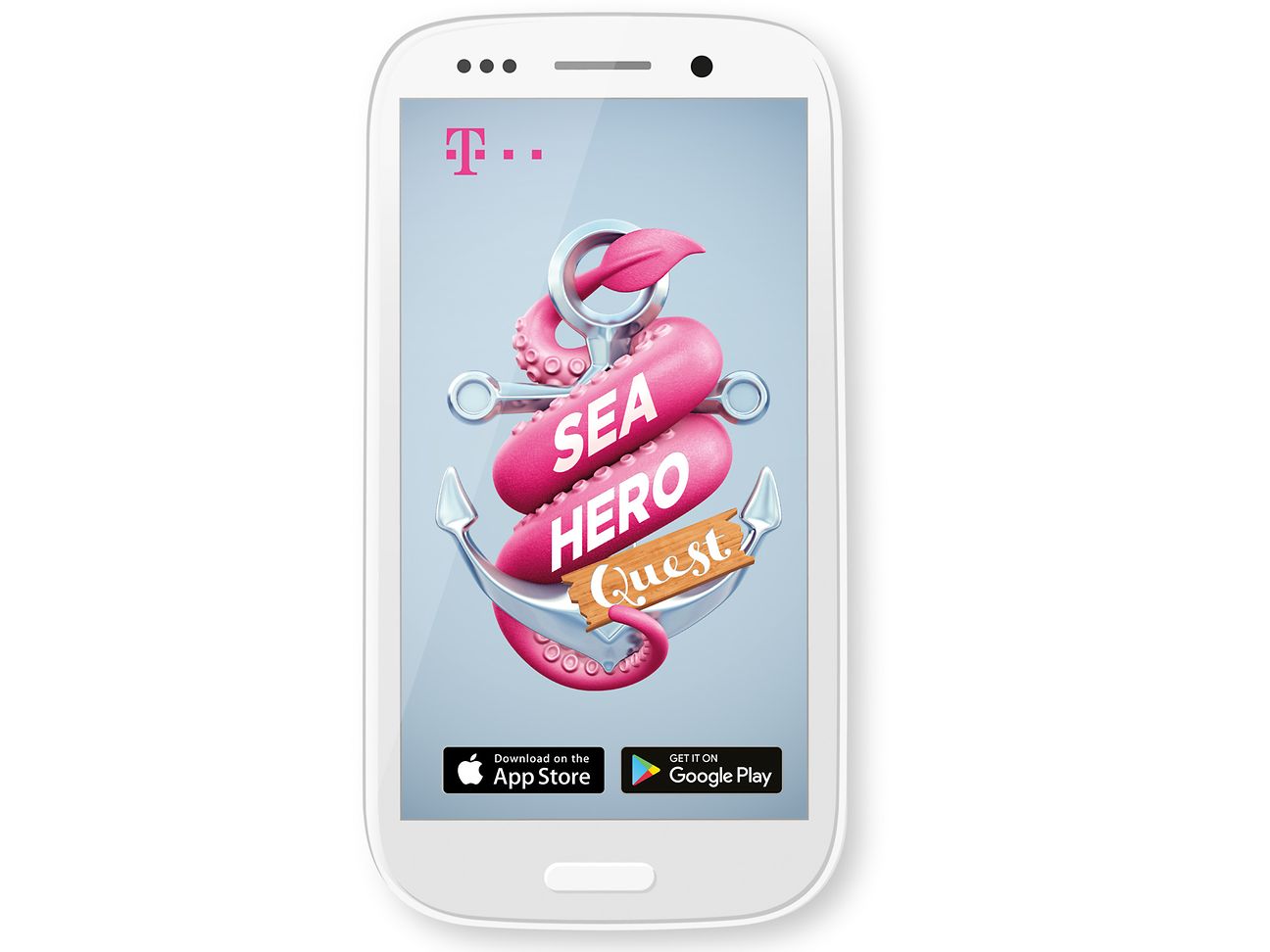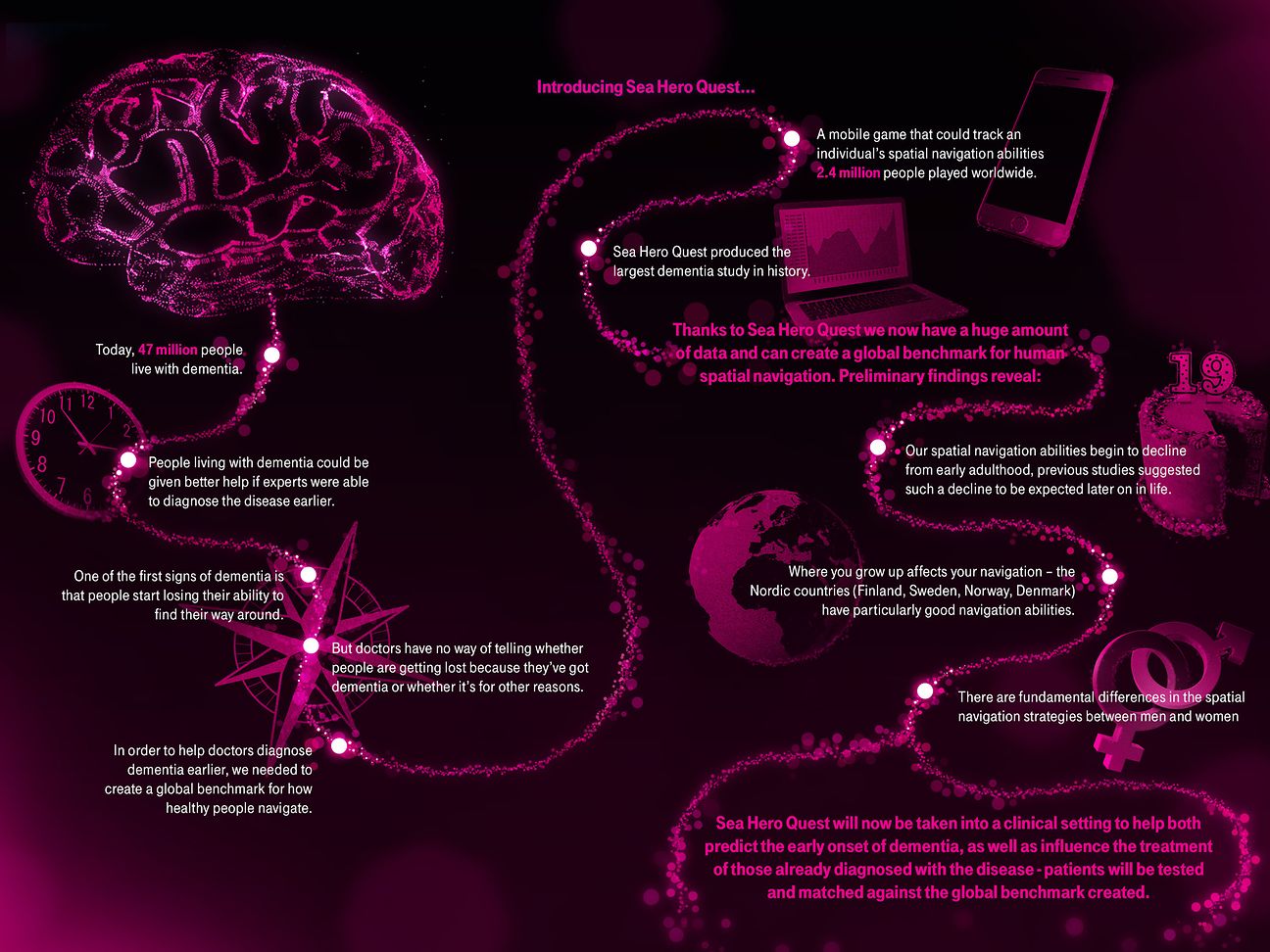Sea Hero Quest: Fighting dementia with a game
An app that makes it possible to identify the early stages of a disease? What sounded like fantasy just a few years ago is now becoming reality: In May 2016, Deutsche Telekom launched the mobile game Sea Hero Quest to reinforce basic research on dementia. Just six months later, initial results shown that digitization is not only improving basic research, but is also helping to identify the disease at an earlier stage.
So far, a total of 2.5 million people in 193 countries have played the game. If conventional methods were used, scientists would have taken decades to collect this data in labs. Moreover, the game is creating a global database for the very first time that will enable scientists to derive standardized data on spatial awareness from people of all ages and genders – the foundation for the world's largest baseline study in dementia research. This data is also improving the possibilities for detecting onset dementia at an earlier stage and developing treatments against this disease.
Orientation is key to understanding dementia
Hugo Spiers of University College London and Michael Hornberger, Professor of Applied Dementia Research at the Norwich Medical School, University of East Anglia, are responsible for analyzing the data. Declining spatial orientation ability could be an initial signal for dementia, says Hornberger: "That's why it's hugely important for us to find out more about the brain's spatial navigation capabilities, to understand what exactly begins to deteriorate with the onset of dementia."
Early diagnosis of dementia will become possible
Previously, researchers assumed that orientation ability only declines with advanced age. An analysis of the game data, however, shows that orientation abilities begin to deteriorate in people as young as 19. And once started, this deterioration usually continues throughout life.
This indicates that the processes involved in dementia begin before they are readily apparent: the region of the brain responsible for spatial orientation seems to be more susceptible to dementia than the region for memory – the loss of which is also an important indicator for the disease. "Identifying dementia at an earlier stage, before patients begin experiencing memory problems, would be a milestone," says Spiers. The data collected in the game will also make it possible to introduce more targeted therapies.
Combination of research, technology and creativity
The new insights into human navigation behavior are the result of a novel form of collaboration in dementia research. "A complex threat to health like dementia demands innovative research methods," says Hilary Evans, Chief Executive of Alzheimer's Research UK. Evans' proposal: The dataset that was generated so quickly through 'Sea Hero Quest' should inspire other companies to think about how they might contribute to dementia research – or to solving one of the many other dire medical problems.
For more information, visit www.seaheroquest.com
It‘s happening in the cloud:
The collected data is analyzed in Deutsche Telekom's cloud infrastructure. The anonymized data is stored at a high-security data center in Munich, where it is made available to researchers. Each player's position is calculated twice per second and sent to the data center, In fact, the Telekom Cloud was a prerequisite for developing the game at all: scientists, game designers and programmers worked in parallel for five months in different locations around the globe. The technical solution enabled all participants to process and exchange data in real time. The result was a game that isn't just fun to play, but also gave a massive boost to research.


